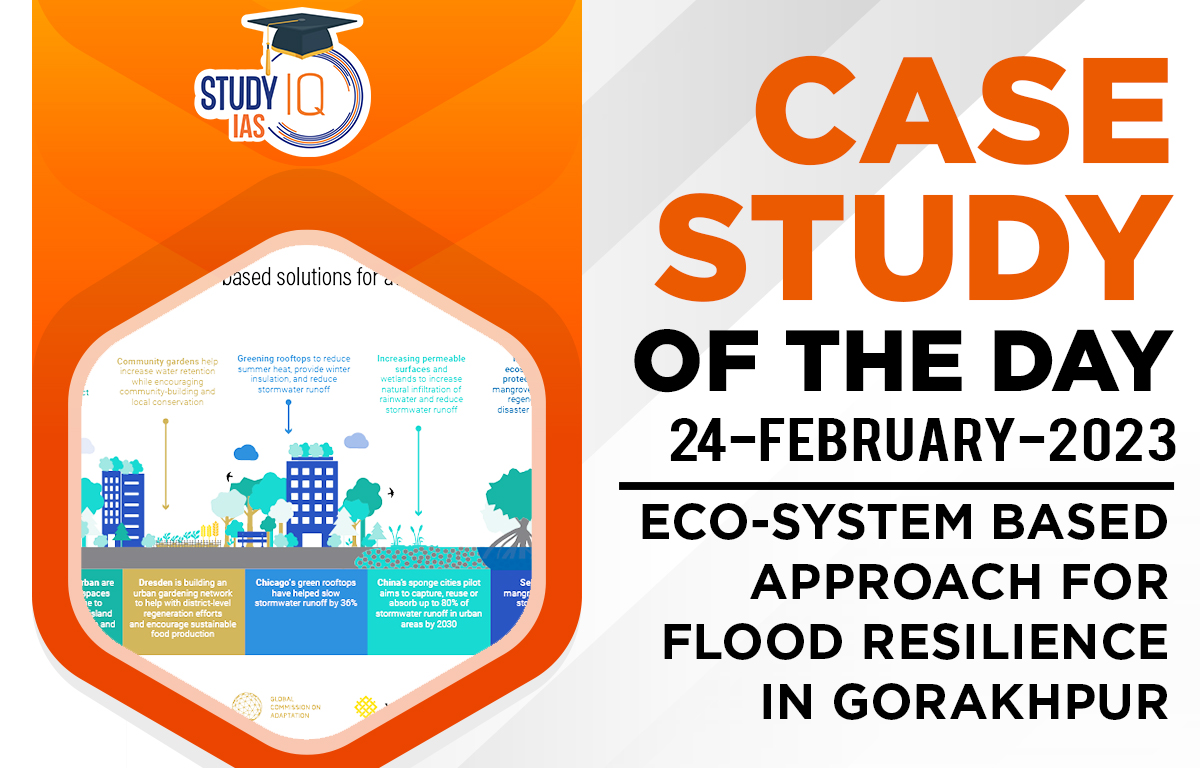Background: The topography of Gorakhpur region (Uttar Pradesh) combined with ‘Urban Expansion’, had increased its vulnerability to natural disasters, the risk which can be mitigated by an Eco-system based approach.
About Eco-system based Approach
- The prior situation in Gorakhpur were:
- Unregulated urban planning and unauthorized/improper constructions, including encroachments of low lying and natural wetland areas.
- Increased rainfall projections resulting in higher flood risks.
- Flooding caused water logging, which lead to disruptions in transport systems, roads and property damage, thereby, affecting livelihood systems and increasing the vulnerability of the poor.
- Large scale conversion of agriculture land for non-agriculture uses, exacerbated climate change
- Risks by increasing water logging and run-off.
- To address the situation, the Gorakhpur Environmental Action Group (GEAG) conducted many studies and research on building resilience, through following measures:
- Conservation of water-bodies and removing encroachments.
- This involves Government arranging funds and setting mandate to civic authorities to remove encroachments and beautifying lakes in region.
- Preservation of peri-urban agriculture
- This is to improve draining area for excess storm water, with added co-benefits of improving livelihood opportunities for poorest, diversifying food source for urban populations, making use of urban waste for fertilizer, irrigation (recycled waste water), etc.
- Conservation of water-bodies and removing encroachments.
- The phenomenal development process of Natural Environment builds resilience in itself to address any Disaster Risk.


 Coconut Oil Taxation in India
Coconut Oil Taxation in India
 India-made Solar Photovoltaic (PV) Cells...
India-made Solar Photovoltaic (PV) Cells...
 Supreme Court Ruling on Tree Preservatio...
Supreme Court Ruling on Tree Preservatio...




















